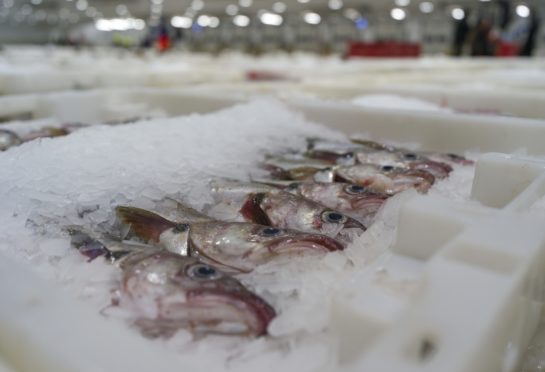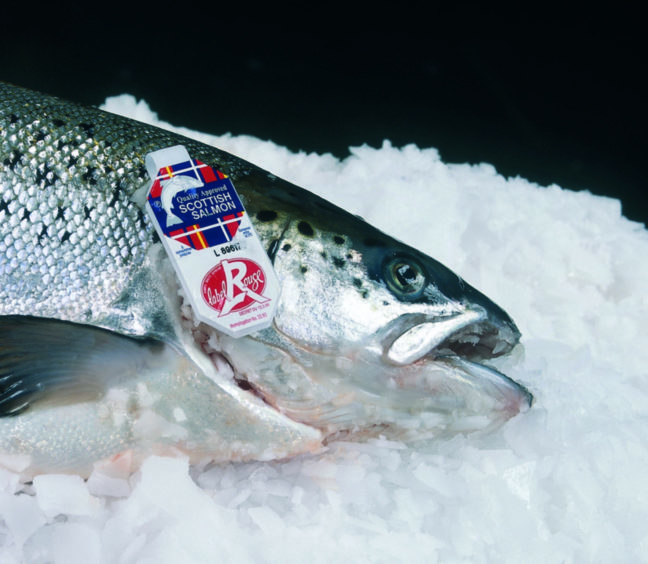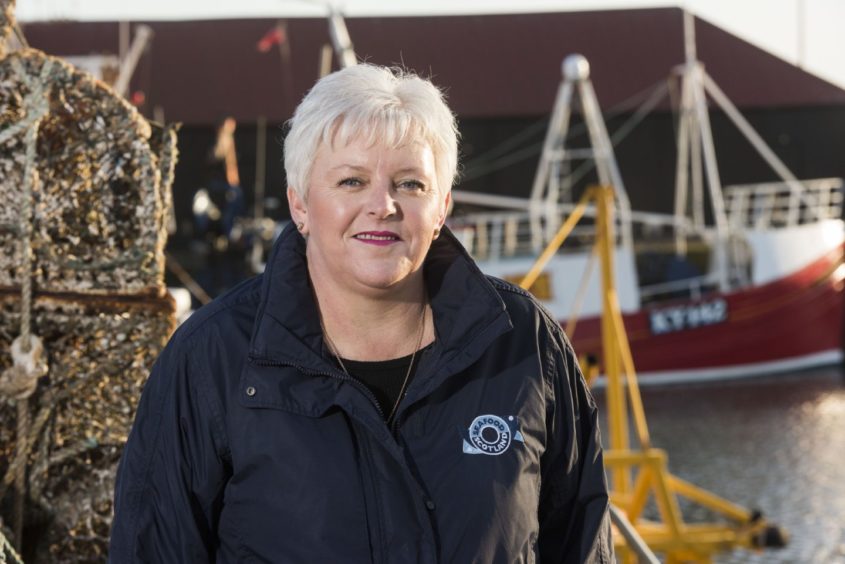The boss of Scotland Food & Drink has warned the country’s seafood supply chain is in danger of grinding to a halt as post-Brexit red tape holds up exports.
James Withers, the industry leadership group’s chief executive, said delays over the past 72 hours had been “very challenging” as industry and the authorities adjust to new, complex trading rules “without having had any time to properly test them”.
He added: “We have warned for months about the lack of preparation time for everyone involved and these problems sadly come as little surprise.
“There are now a lot of bureaucratic steps to navigate in getting product from Scotland into France, and small delays at different points can quickly cause major problems for a set of products whose value relies on getting to European markets within 24 hours.”
Lorries have been getting stuck at a key distribution facility in Larkhall, Lanarkshire, since new customs arrangements came into force at the start of the year.
Computer glitches have also stymied efforts to get perishable Scottish produce into France.
One exporter, trading as Isleseafoods, posted an angry response on Twitter – saying “not a single fish or lobster has been exported since New Year” – after it was suggested the new rules amounted to just completing an extra form.
Tell that to the seafood exporters who've got their produce stuck at Larkhall and ports all round Scotland because HMRC haven't issued required codes. Not a single fish or lobster has been exported since new year because they can't be
— isleseafoods (@isleseafoods) January 7, 2021
Mr Withers said: “We have been working very closely with Food Standards Scotland, the Scottish Government and partners across industry to work through delays at Larkhall.
“The prioritisation of simpler loads of single types of seafood, such as salmon, will be a big step forward.
“That will allow the focus to switch to more complex loads, such as those that contain different products and batches from different businesses.”
He added: “There is no doubt that some seafood companies are struggling with the new paperwork requirements, as we knew would be the case.
“This is slowing the checks that have to be undertaken by law before lorries can be despatched from Larkhall to the English ports.
“There is a big exercise happening over the next couple of days with exporters to work through the common issues arising with incomplete or wrong paperwork.
“There have also been significant IT problems on the French side of the Channel. This has led to lorries being diverted to different border inspection points and then being held up.
“The French authorities assure us these systems are now fixed but this will need closely monitored over the coming days.”
Warning of severe financial consequences for the sector if problems are not quickly ironed out, Mr Withers said: “There is a major collective effort to work through all this between industry and government.
“That is critical because the knock-on effect of disruption is significant and can grind the seafood supply chain – from fishing boats to haulage – to a halt very quickly.
“On the back of a horrendous 2020 and a nightmare before Christmas due to the French border closure, the financial impact of that would be grave for many.”
‘A perfect storm for Scottish seafood exporters’
Donna Fordyce, chief executive of trade body Seafood Scotland, said the first week of Brexit had “really delivered what was expected” in new bureaucratic non-tariff barriers, and “no one body with the tools to be able to fix the situation”.
Ms Fordyce added: “It’s a perfect storm for Scottish seafood exporters. Weakened by Covid-19, and the closure of the French border before Christmas, the end of the Brexit transition period has unleashed layer-upon-layer of administrative problems, resulting in queues, border refusals and utter confusion.
“IT problems in France meant consignments were diverted from Boulogne-sur-Mer to Dunkirk, which was unprepared as it wasn’t supposed to be at the export frontline.
“There have also been HMRC (HM Revenue and Customs) IT issues on the UK side that need to be resolved ASAP regarding certification.
“A lack of knowledge and understanding of the required paperwork means some companies are ill-prepared for the new checks, which are taking far longer because of the mistakes being uncovered.
“When the systems settle down, checks should be carried out on samples from each load but now entire consignments are having to be checked to satisfy requirements.”
Valuable Scottish produce is in danger of going to waste, she warned, adding: “These businesses are not transporting toilet rolls or widgets. They are exporting the highest quality, perishable seafood which has a finite window to get to markets in peak condition.
“If the window closes, these consignments go to landfill. The knock-on effect of export falling over is that the fishing fleet will have little reason to go out. In a very short time, we could see the destruction of a centuries-old market which contributes significantly to the Scottish economy.
We are working with industry, government, and other bodies to try to mop up the mess.”
Donna Fordyce, head of Seafood Scotland
“The problem is no longer hypothetical. It is happening right now. We are working with industry, government, and other bodies to try to mop up the mess to allow trade to flow again.
“We are doing all we can to help companies get the paperwork done. It will take time to fix – which we know many seafood companies can’t afford right now.”
Aberdeen South and North Kincardine SNP MSP Maureen Watt said: “This time last year, sending high quality seafood from Scotland to markets in the EU was seamless and effortless.
“In less than a week, Brexit and the new rules for trading with our closest overseas neighbours are causing some to stop trading altogether.”
Overseas food and drink exports from Scotland – including fish and shellfish – are worth £6 billion a year, more than £2bn of which is sold to the European Union.


